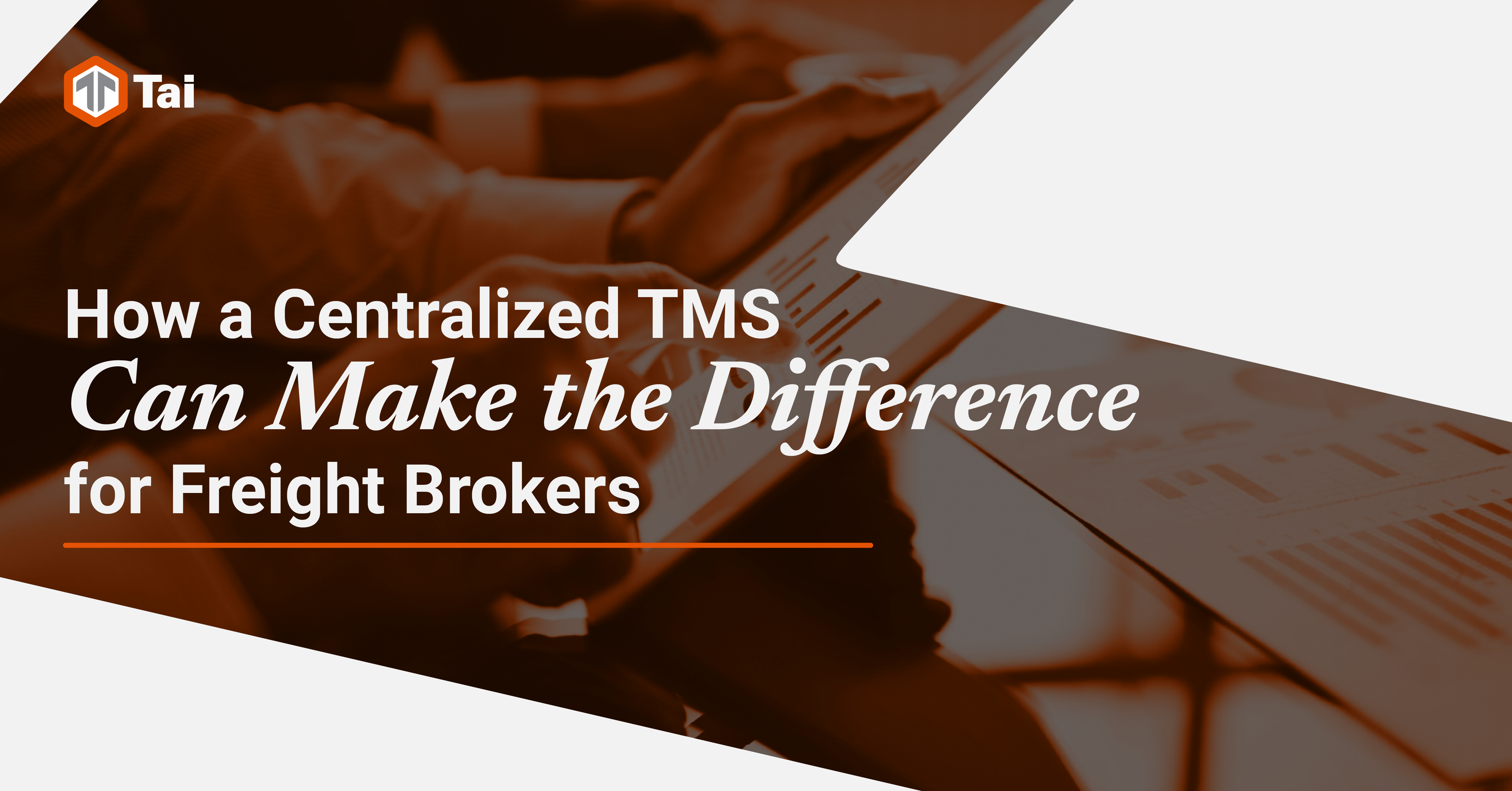When it comes to running a profitable freight brokerage, the difference between thriving and merely surviving often comes down to one key factor: Efficiency. In an industry with complex logistics and constantly evolving regulations, a Transportation Management System can be the game-changing tool you need to take your business to the next level. But the key factor that many overlook is how you utilize your TMS. Simply having a TMS is no longer enough.
A Brief Introduction To Transportation Management Systems
Beyond mere functions, the importance of a TMS lies in its capacity to revolutionize the entire shipping lifecycle and streamline administrative processes. It enables immediate and accurate calculation of shipping rates, facilitates real-time visibility of shipments, and aids in optimizing routes and consolidating freight.
These advantages contribute directly to minimizing costs and boosting service reliability. The right TMS also seamlessly handles document management and automates invoicing, thereby ensuring regulatory compliance, reducing manual errors, and accelerating financial operations.
If you want to maximize your investment, focus on finding a TMS that is capable to operate as the core system in your technology suite. By funneling your other tools and systems through your TMS, you unlock exponentially more ROI.
Benefits
Enhancing Efficiency and Accuracy
The digital nature of a TMS allows for the automation of repetitive tasks and paperwork that might otherwise consume a significant portion of your workday. Processes such as dispatching, carrier selection, route planning, and invoicing can all be automated, freeing up your time to focus on expanding your business and servicing your clients.
Moreover, a TMS can improve accuracy by eliminating manual entry and thereby reducing the risk of human errors. This can lead to faster, more reliable service – a key factor in building trust with your customers.
By running these tasks through your TMS, not only do the automations add significant value, but you reduce the need to spend time in other systems, making you more efficient as well.
Real-Time Visibility and Control
Transparency and control are critical in the freight brokerage business. A TMS gives you real-time visibility into every step of the shipping process, from pickup to delivery. You’ll be able to track shipments, manage carriers, and even anticipate and mitigate potential issues before they occur. This kind of visibility can be a significant selling point for your clients, who appreciate being kept in the loop about their shipments.
Taking visibility a step further, by centralizing your TMS, you’ll no longer need to hunt from system to system looking for the critical, time-sensitive data you need to make informed decisions. Pulling everything to your TMS means you have a better view, sooner.
Streamlined Communication
Effective communication with carriers and clients is vital to running a successful freight brokerage. A TMS centralizes all communications, making it easier to coordinate with carriers and update clients on shipment status. Moreover, a TMS can automate certain communications like sending out load confirmations and rate confirmations, saving you even more time.
Data-Driven Decisions
A TMS can provide valuable analytics and reporting capabilities, allowing you to make informed, data-driven decisions. This includes carrier performance, cost analysis, route optimization, and more. Having this data at your fingertips can help you identify trends, spot opportunities, and make strategic decisions that enhance profitability.
Strategic Carrier Selection and Route Optimization
Gain valuable insights for choosing the most suitable carriers based on transit times, service types, and liability ranges. A TMS can identify the best carrier and route swiftly, considering various factors such as distance, traffic, load sizes, carrier’s service speed, and liability coverage. This informed selection results in faster, more reliable delivery, and significant cost savings.
Further, a TMS excels in formulating multimodal transportation plans, integrating various types of carriers and transport modes to devise the most efficient, cost-effective strategy. This not only promotes financial viability but also underscores your company’s commitment to sustainability, fostering an operation that is both profitable and environmentally conscious.
Improved Customer Service
The customer is king, and a TMS provides multiple avenues for improving customer satisfaction. With real-time tracking and updates, customers are always informed about the status of their shipments. This transparency builds trust and improves the overall customer experience.
In addition, there is capacity opened for the team that can allow for the opportunity to prioritize customer issues. By building your processes around your TMS as the primary source of truth, you’ll unlock an automated inbox. Instead of having to deal with all the minor complaints that may come flooding in, your representatives can focus on the biggest issues at play to improve overall customer satisfaction. The data collected by a TMS can even help you identify areas of improvement.
Automated Invoicing and Payments
One of the most important actions that brokers need to do is manage invoices and payments. This can be a complex and time-consuming task when done manually, but a TMS can automate this process, ensuring timely and accurate invoicing. This not only improves cash flow but also reduces the potential for errors that can lead to disputes and strained relationships with carriers or clients.
A TMS can also streamline the payment process. For instance, it can automatically schedule payments to carriers based on agreed terms, or instantly process client payments upon delivery. This automation reduces the administrative burden and allows you to focus more on your core business operations.
Scalability and Flexibility
Perhaps one of the most compelling advantages of a TMS is its scalability and flexibility. As your business grows, so do the complexities of managing more shipments, more carriers, and more clients. A TMS can easily scale with your business, accommodating more volume and more complexity without missing a beat.
At the same time, a TMS offers the flexibility to adapt to changing business needs or market conditions. Whether you need to onboard new carriers, comply with new regulations, or expand into new geographies, a TMS can adapt quickly and efficiently.
Choosing The Right TMS: A Strategic Decision For Your Freight Brokerage Success
While there are numerous TMS solutions in the market, it’s crucial to choose one that aligns with your business needs. Look for a system that is easy to use, integrates with your existing technology, and offers robust support and continuous updates. A good TMS is more than just software; it’s a strategic partner that can help you drive your freight brokerage business forward. It provides the foundation for efficient, customer-focused, and profitable freight brokerage operations – today, tomorrow, and well into the future.
For more tips and tricks, Step into the future of freight brokerage with Tai’s new Whitepaper, featuring proven strategies for surviving and thriving even in a down market. Uncover invaluable insights and substantial techniques to strengthen partnerships and navigate market fluctuations. Access the White Paper now and level up your business by cultivating an unbreakable broker-carrier relationship.


